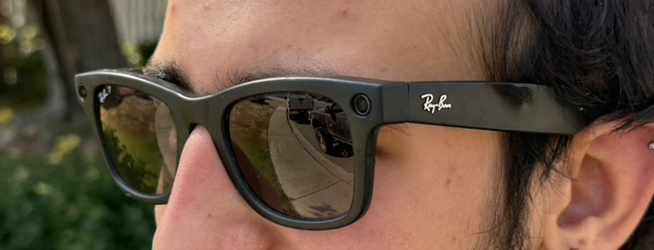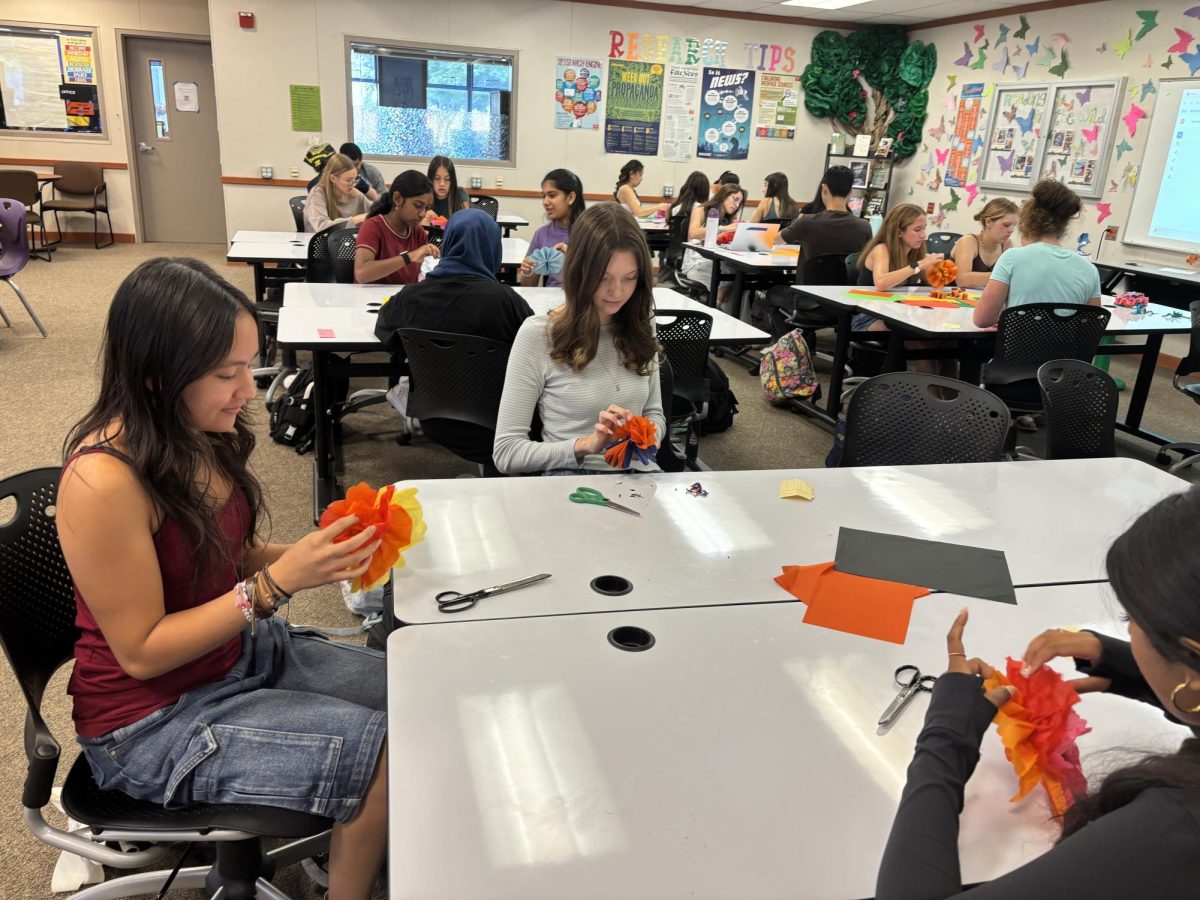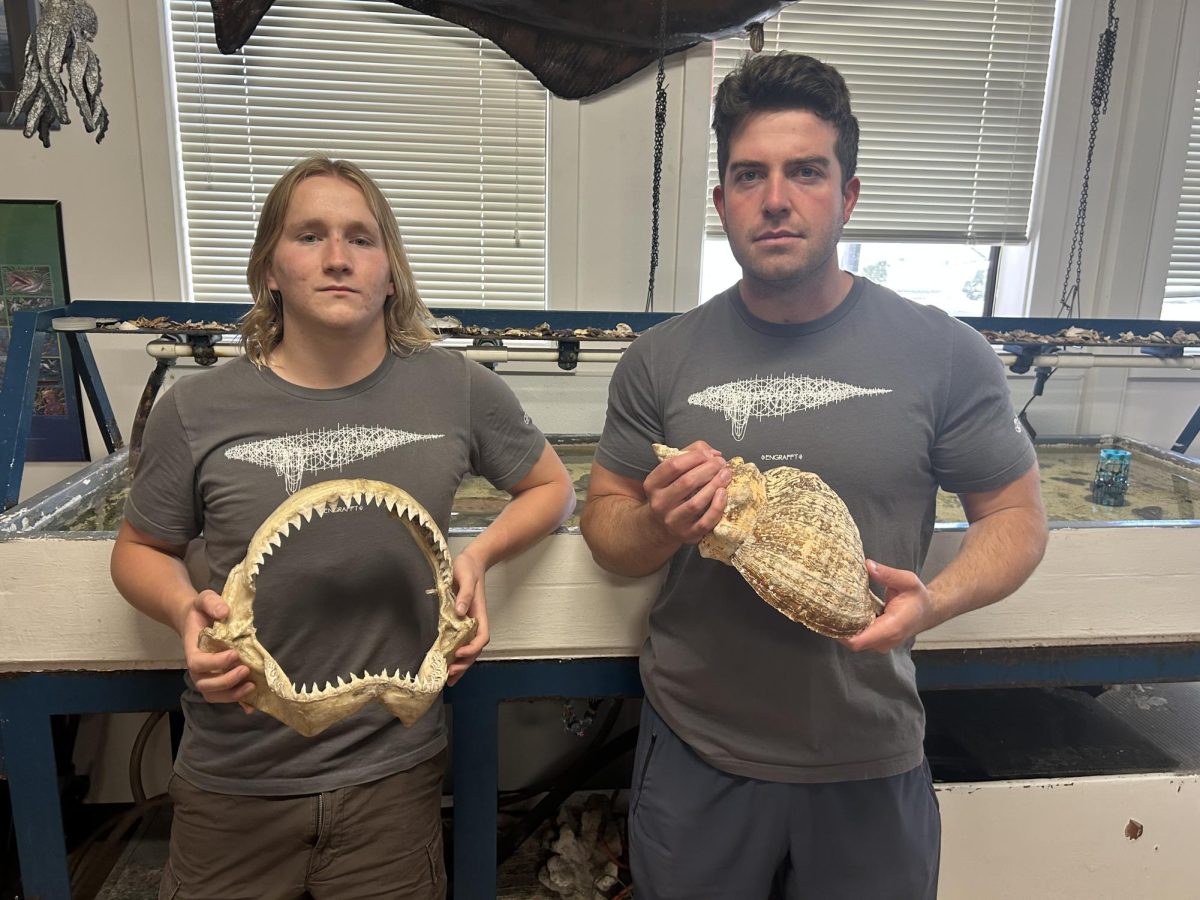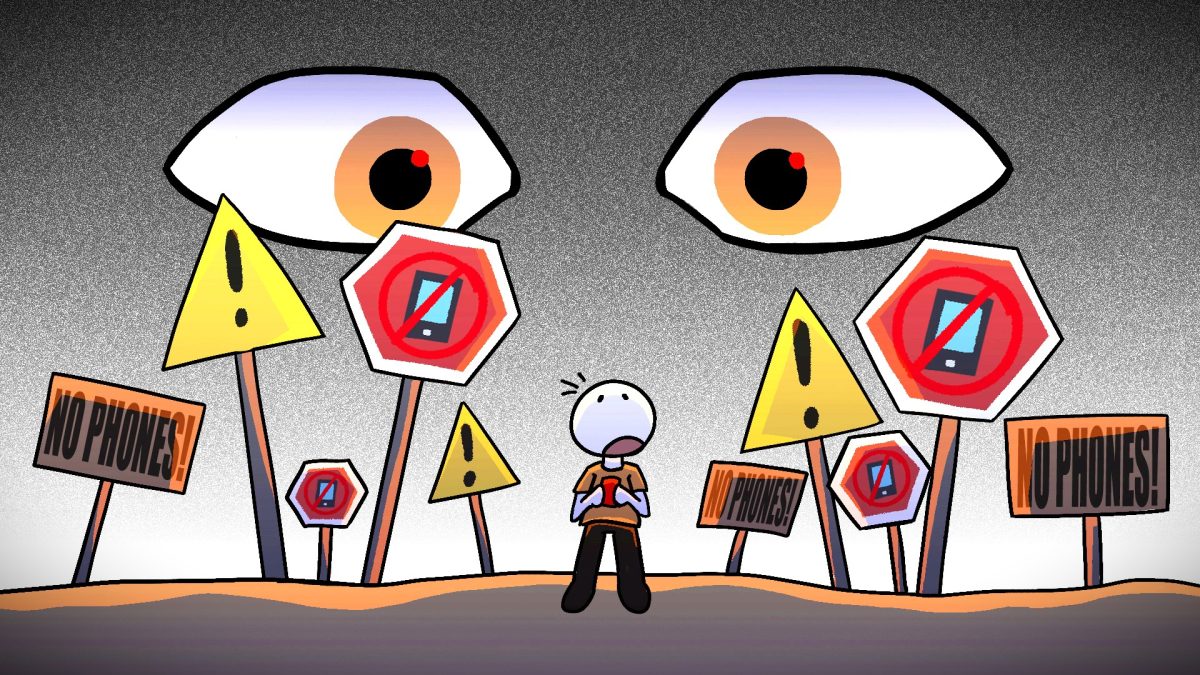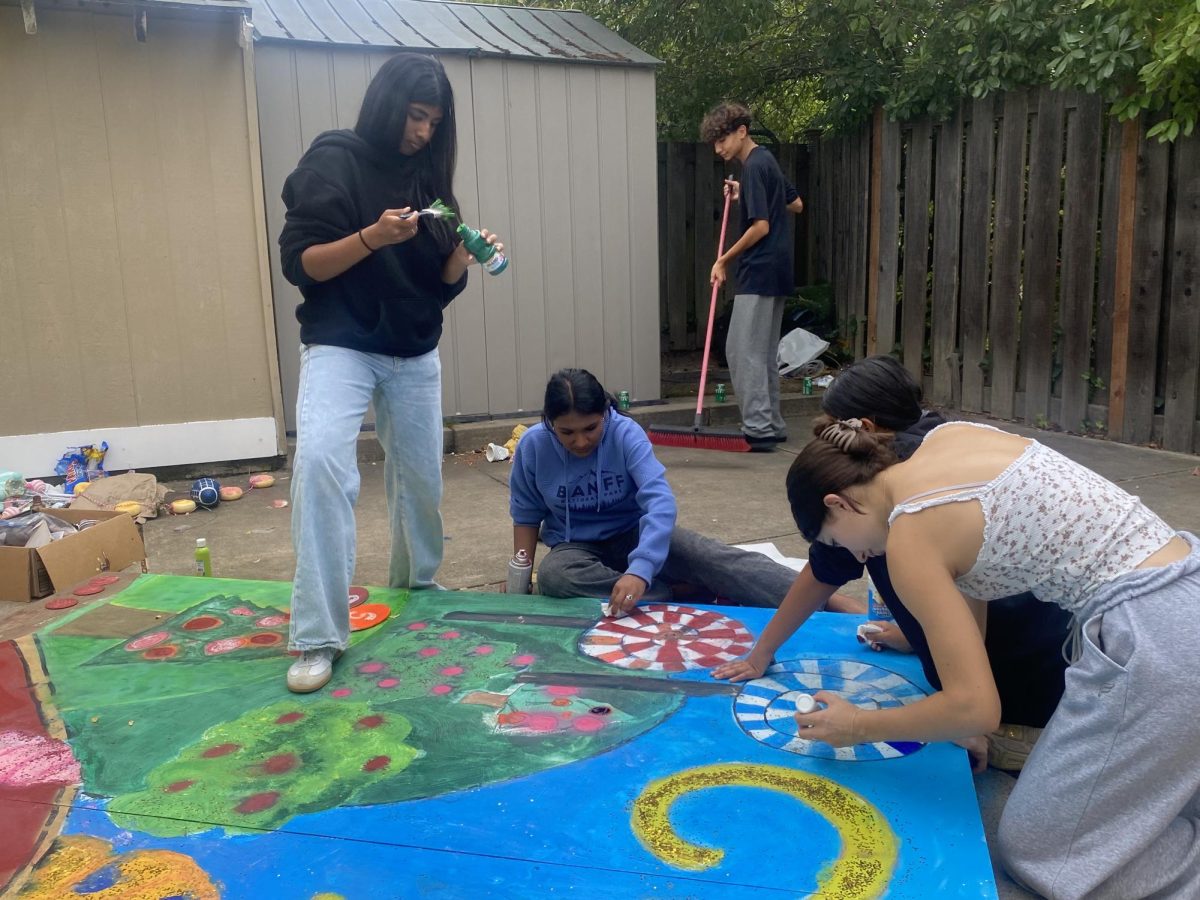Glasses with the ability to play music, answer questions, and take photos and videos may seem like something out of a science fiction movie.
For students, these glasses could be an innovative and futuristic tool to use in the 21st century classroom. But in practice, the glasses have become just another method for students to possibly cheat.
The Ray-Ban Meta glasses, which cost up to $500 depending on the model, are unlike any other eyewear on the market. They have features such as a camera, microphone, and speakers, all adorned with built-in Meta Artificial Intelligence (AI).
“We can’t trust students not to cheat,” Cal High biology and AP Biology teacher Jacob Schecter said. “That’s why we don’t let them take their phones out and videotape and take pictures of the tests. And now the students are trying to bypass that by using the glasses.”
Schecter allows his students to make test corrections on every exam, but he has strict rules in place to prevent academic dishonesty, both during and after the test.
While the glasses also have the ability to search the web and relay information to the user when they say “Hey Meta” followed by a command, Schecter’s main concern is the possibility of a student in an earlier period taking pictures or videos of the test. They could then help a student in a later period cheat by showing them the test beforehand.
Class of 2025 graduate Alex Gomes, who owns a pair of Ray-Ban Meta AI glasses, admits having thought about using them to cheat in class while he was a Cal student.
“It crossed my mind at times that you could totally just take pictures of the test for your friends later on,” Gomes said. “But I never did it because I value honesty.”
The process of taking a photo or a video on the glasses is quite simple.
“There’s a button on the side of the glasses,” Gomes said. “You just tap and it takes the picture or you hold down the button and [the recording] starts.”
According to Cal’s student handbook, students are prohibited from wearing mobile communication devices (MCDs) in the classroom. Principal Demetrius Ball confirmed that Meta glasses fall into the category of MCDs, along with smartwatches and phones.
“[The glasses] should be off and stored during the school day,” Ball said.
Ball said while teachers and administrators don’t want to assume students will be dishonest when wearing the glasses, it’s important to put measures in place to prevent cheating.
Though most Cal students don’t own these glasses, Schecter believes it is only a matter of time before their use becomes more widespread. The issue of these glasses was brought to the attention of the entire staff when another teacher emailed everyone about a student wearing them in class.
“Like with vaping, it didn’t start with a large population,“ Schecter said. “But as soon as it becomes popular or easily attainable, it will spread quickly.”
Another potential issue related to the recording feature on the Meta glasses is a violation of students’ and teachers’ privacy.
“If someone is going to record, they have to get prior permission in the classroom,” Ball said. “That goes for photography too.”
According to California Education Code 78907, students cannot record or photograph other students or teachers in a classroom without their consent. This is a serious policy that many students may not be aware of.
Outside the classroom, these glasses could bring up significant legal issues as well.
“Imagine somebody walking around with these sunglasses through the locker rooms,” Schecter said. “This is a huge issue.”
There are some ways students can determine if the glasses’s camera is on. On the side of the frame opposite from the camera lens, there is a light that flashes once when a picture is taken and stays on the whole time when the camera is recording.
But some don’t believe the glasses’ camera feature is easy enough to identify.
“It’s very subtle when it’s recording,” senior Ryan Clark said.
Schecter agrees that the camera isn’t noticeable enough.
“The whole point is to hide the camera,” Schecter said. “[Ray-Ban] could have made choices to make [the camera] more obvious and they chose not to. There’s no way an entire company didn’t notice what a few teachers noticed in an instant.”
Although these glasses have the potential to be used irresponsibly, they can also be used in a worthwhile way. Gomes said he likes using them to live-stream when he goes off-roading.
“I use them as a first-person view because it’s a lot easier than trying to hold a camera,” Gomes said.
Clark agrees, noting the glasses could allow people to record and take pictures while still living in the moment.
Schecter believes that these glasses can be used responsibly, but thinks their potential use for cheating and violating students’ and teachers’ privacy make them a tool that likely won’t be used ethically.
“Like with all technologies, it’s how they’re used,” Schecter said. “Not saying these technologies are inherently a bad thing, but I don’t think [the glasses are] going to be used properly, even though they theoretically could.”
